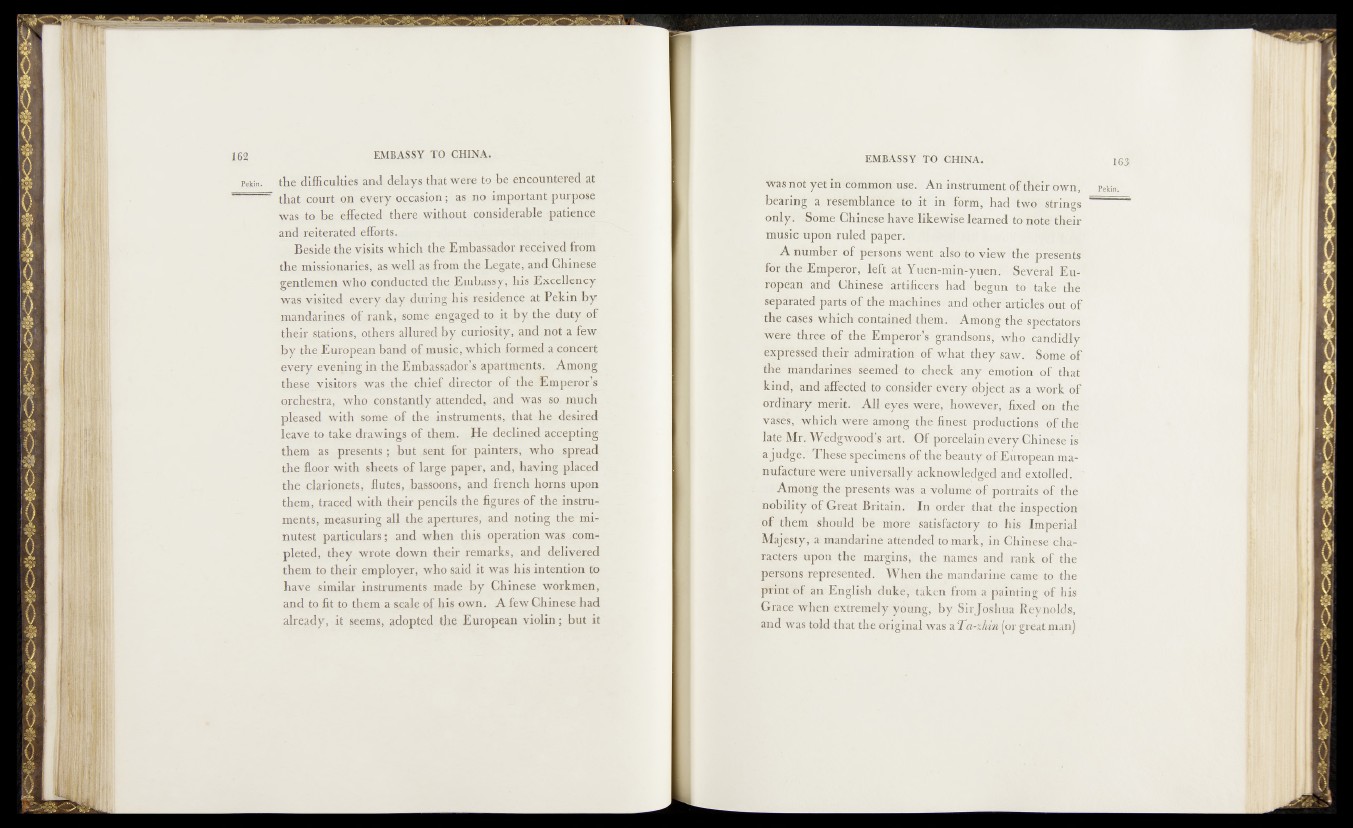
Pekin. the difficulties and delays that were<^3?e encountered at
that court on every occasion; as no important purpose
was to be effected there without considerable patience
and reiterated efforts.
Beside the visits which the Embassador received from
the missionaries, as well as from the Legate, and Chinese
gentlemen who conducted the Embassy, his Excellency
was visited c¥ery day during his residence at Pekin by
mandarines of rank,, some engaged to it by the duty of
their stations, others allured by curiosity, and not a Jew«
by the, ^European band of rau%, which formed; aepneert
every evening in the Embassador’s apartments. Among
these visitors was the chief director of the ISmperor’s
orchestra, who constantly attended, and was so. much
pleased with some of the instruments, that he desired
leave to take drawings of them. Be declined accepting
them as presents ; but sent for painters, who spread
the floor with sheets of large paper, and, having placed
the clarionets, flutes, bassoons, and french horns upon
them, traced whh their pencils the figu^l of thefinstru-
ments, measuring all the apertures, and noting the' minutest
particulars; and when this operation was completed,
they wrote down their remarks, and delivered
them to their employer, who said it was his intention to
have similar instruments made by Chinese workmen,
and to fit to them a scale of his own. A few Chinese had
already, it seems, adopted the European violin; but it
Was not yet in common use. An instrument of their own,
bearing a resemblance to it in form, had two strings
only. Some Chinese have likewise learned to*note their
music upon ruled paper.
A number of persons wént also to view the presents
for the Emperor, left at Yueirfmin-yuen. 'Several European
and Chinese artificers^ had begun to 1 take the
separated parts of the machiifesi.ahd other-articles- out of'
the cases which contained them.' Among the Spectators
were thr&p of-the Emperor's grandsons, who candidly
expressed their admiration of what they.saw. Some.of
the mandarines« seemed to cheek' any emotion, of that
kmdy and affected to consider .-eteUjy object as a work of
ordinary merit. All-eyes'were, however, fined, on thè
vaSés, which were among theJBnest prodkelidns of the-
late Mr. Wedgwbod’s'art: Of porcelain efoöry Chinese•&
a judge.’' These specimens of the beauty^pf European m -
nufacture were universally acknowledged and extolled.
Among tfi# presents was a volume'of portraits of the
nobility ó f Great Britain. In Order that the inspection
of them should be more satisfactory to his Imperial
Majesty; a mandarine attended to mark, in Chinese characters
Upon the margins, the names and rank of the
persons represented. When the mandarine came to the
print of an English duke, -taken from a painting -of his
Brace when extremely young , b y Sir Joshua Reynolds,
and was told that the original was a Ta-zhin (or great man)
Pekin.